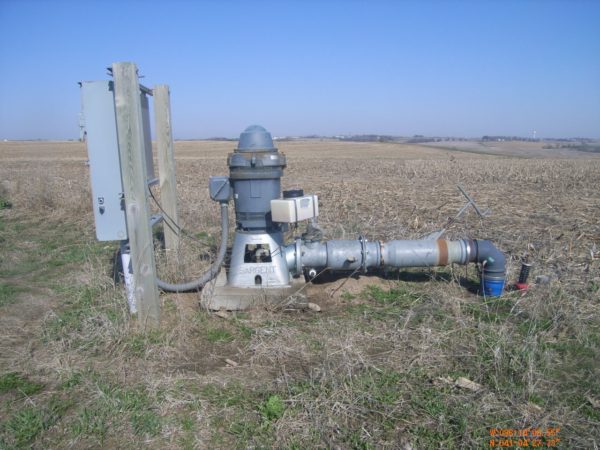Following the adoption of the Papio-Missouri River Natural Resources District’s (P-MRNRD) new Groundwater Management Plan in February, new rules and regulations go into effect on March 1, 2018. While this may seem ominous, the new rules don’t require everything to change all at once.
For instance, requirements to follow new fertilizer application dates won’t apply until after the 2018 crops are harvested. Once crops are harvested, organic and low-level non-organic nitrogen fertilizer (<40 lbs N per acre) can be applied in all areas of the District. Application of higher levels of non-organic nitrogen fertilizer (>40 lbs N per acre) must wait until after March 1, 2019, in the Platte and Elkhorn River valley (HCA area) and until after November 1, 2018, across the rest of the NRD (Non-HCA area).

The main requirement that does go into effect March 1, 2018, is that anyone within the District proposing to construct a high capacity well (those pumping over 50 gallons per minute) must submit for a Water Supply Well Permit from the District. The application form for the permit is available online, or can be printed and submitted via email, fax at 402-896-6543, or by mail. Please visit our Groundwater Quantity page for instructions and more details.

Finally, the District will be reviewing and considering a new Groundwater Management Program cost-share policy at its Subcommittee and Board of Directors meetings on March 6th and 8th respectively. This policy would make cost-share available from the NRD to landowners to improve irrigation efficiency and help landowners in Phase II Groundwater Quality Management areas pay for soil nutrient testing. It would also provide cost-share for up to five years for irrigators in the Platte and Elkhorn River valley to purchase and install flow meters. After five years, flow meters will be required on all irrigation wells in this area.
It is also the intention of the NRD to continue to offer educational opportunities about the new Groundwater Management Plan in areas across the District. Topics will include irrigation management, nutrient management, domestic well groundwater testing and wellhead protection.

